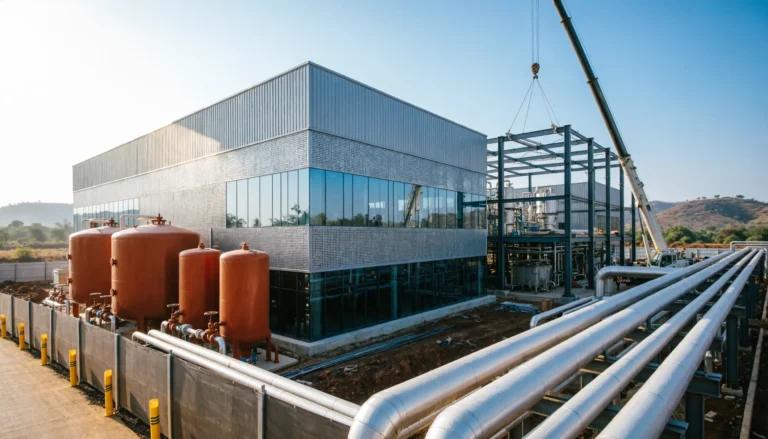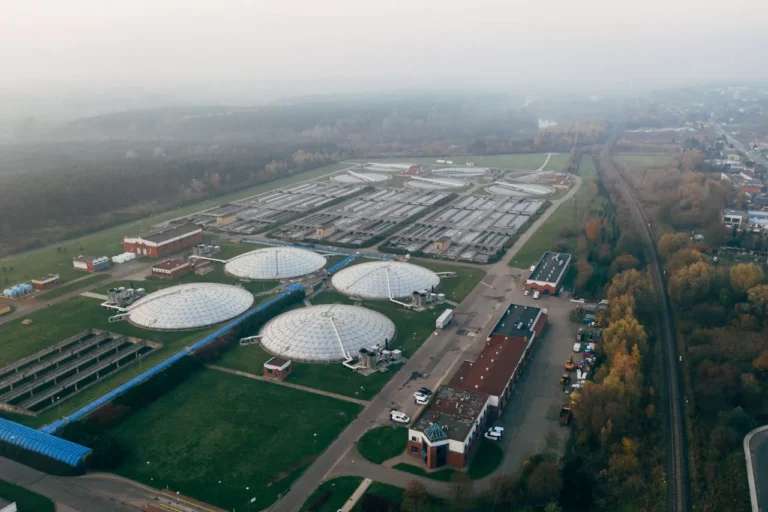
Bayer announced significant progress today in its efforts to develop new treatment options for Parkinson’s disease (PD), a chronic and progressive neurodegenerative disorder that affects millions of people worldwide. The company reported two important clinical trial milestones: the initiation of the pivotal Phase III exPDite-2 trial for bemdaneprocel, an investigational cell therapy, and the enrollment of the first European participants in REGENERATE-PD, a Phase II gene therapy study investigating AB-1005.
Both investigational therapies are designed for people living with moderate-stage Parkinson’s disease and are being developed by Bayer’s wholly owned, independently operated subsidiaries—BlueRock Therapeutics LP for bemdaneprocel and AskBio Inc. for AB-1005.
Dual Pathway Approach
By advancing both cell and gene therapies simultaneously, Bayer is strengthening its leadership in next-generation therapeutics for neurodegenerative diseases. The company’s strategy reflects its belief that tackling Parkinson’s disease from multiple biological angles increases the likelihood of delivering meaningful new treatments.
“Our dual approach in addressing Parkinson’s disease through both cell and gene therapies exemplifies our strategic vision and maximizes our chances of offering renewed hope for Parkinson’s patients who have been waiting for new therapies for too long,” said Christian Rommel, Global Head of Research and Development of Bayer’s Pharmaceutical Division. “We are energized by being at the forefront of the development of disease-modifying therapies that have the potential to make a meaningful impact on patients’ lives.”
Cell Therapy: Bemdaneprocel
Parkinson’s disease is primarily caused by the loss of dopamine-producing neurons in the brain, leading to progressive motor impairment, tremors, stiffness, and reduced mobility. Bemdaneprocel is designed to directly address this underlying pathology by replacing lost cells with new dopamine-producing neurons derived from stem cells.
“Bemdaneprocel aims to replace these lost cells with new dopamine-producing neurons, and we are excited that the pivotal Phase III exPDite-2 clinical trial to explore this approach is now underway,” said Gabi Belfort, MD, PhD, Senior Vice President and Bemdaneprocel Product Lead at BlueRock Therapeutics.
The launch of the Phase III exPDite-2 study represents a key step forward in validating cell replacement therapy as a viable disease-modifying approach for Parkinson’s patients.
Gene Therapy: AB-1005
In parallel, Bayer is advancing AB-1005, an investigational gene therapy developed by AskBio. This therapy aims to promote neurorestoration by delivering genetic material directly into the brain to potentially improve dopamine function and slow disease progression.
“We believe there is a significant need for neurorestorative therapies in Parkinson’s, and AskBio is committed to exploring the potential of investigational gene therapy AB-1005 in the treatment of this severe, progressive chronic disease,” said Adrian Kells, PhD, Senior Vice President, Integrated Product Team Lead, Parkinson’s and MSA, at AskBio. “We are excited to share the news of the advancement of our REGENERATE-PD clinical trial in Europe, which we believe is an important update for patients and the medical community.”
Bayer’s Broader Commitment
Bayer has built a global platform for cell and gene therapy development, manufacturing, and commercialization, establishing an end-to-end approach that spans early research, clinical testing, and large-scale production. With cutting-edge facilities worldwide, the company aims to accelerate innovation and bring transformative therapies to patients faster.
While both bemdaneprocel and AB-1005 are still investigational and have not been approved by any regulatory authority, their advancement into late-stage and mid-stage trials marks an important step in Bayer’s mission to pioneer disease-modifying treatments for Parkinson’s.
About Parkinson’s Disease
Parkinson’s disease (PD) is a progressive neurodegenerative disease. It has a significant impact on a person’s daily life. In PD, the death of dopamine producing nerve cells in the brain leads to the continuous loss of motor function. Symptoms include tremors, muscle rigidity, and slowness of movement. Additionally, people with PD experience non-motor symptoms, including fatigue and lack of energy, cognitive issues, and depression. Symptoms typically intensify over time and make everyday tasks demanding.
The prevalence of PD has doubled over the past 25 years. Today, more than 10 million people worldwide are estimated to be living with PD. This makes it the world’s second most prevalent neurodegenerative disease. It is also the most frequent movement disorder. At present there is no cure, and current treatment options are inadequate and lack the holistic management of symptoms so there is an urgent need for new therapies.
About Bemdaneprocel (BRT-DA01)
Bemdaneprocel (BRT-DA01) is an investigational cell therapy designed to replace the dopamine producing neurons that are lost in Parkinson’s disease. These dopaminergic neuron precursors are derived from human embryonic pluripotent stem cells that continue developing into mature dopamine neurons after implantation. In a surgical procedure, these neuron precursors are implanted into the brain of a person with Parkinson’s disease. When transplanted, they have the potential to re-form neural networks that have been severely affected by Parkinson’s disease and to potentially restore motor and non-motor function to patients.
In 2021 bemdaneprocel received Fast Track Designation and in 2024 a Regenerative Medicine Advanced Therapy (RMAT) designation from the FDA. Data from the Phase I trial’s 12 participants presented at the 2024 International Congress of Parkinson’s Disease and Movement Disorders (MDS) demonstrated good tolerability, with no serious adverse events related to drug product at 24 months post-surgery. Further, encouraging trends were observed in secondary endpoints related to motor impairments at 24 months post-surgery. These participants continue in the long term Continued Evaluation Study. Bemdaneprocel has not been approved for treatment of any disease or medical condition by any health authority.
About exPDite-2
exPDite-2 is the first Phase III pivotal clinical trial for an investigational allogeneic pluripotent stem cell derived therapy to treat Parkinson’s disease. In a Phase I study with 12 participants, bemdaneprocel was well tolerated, with no serious adverse events related to drug product at 24 months post-surgery. In addition, encouraging trends were observed in secondary endpoints related to motor impairments at 24 months post-surgery. Building on these results, exPDite-2 is a multicenter, double-blind trial that will assess the efficacy, safety and overall impact of bemdaneprocel compared to a sham surgery control. The trial is designed to enroll approximately 102 participants with Parkinson’s disease.
The primary endpoint of the study is change from baseline to week 78 in PD diary measure of ON-time without troublesome dyskinesia, adjusted for a 16-hour waking day. In addition, the trial will incorporate secondary endpoints designed to assess objective measures of movement, non-motor symptoms, safety and tolerability, and instruments that capture activities of daily living and quality of life. For more information about the exPDite-2 clinical trial, visit clinicaltrials.gov (NCT06944522), or visit bluerocktx.com.
Depending upon the outcome, the results from this trial are intended to be part of a data package to support regulatory submissions for marketing authorization.
About AB1005
AB-1005 is an investigational gene therapy based on adeno-associated viral vector serotype 2 (AAV2) containing the human glial cell line-derived neurotrophic factor (GDNF) transgene, which allows for stable and continuous expression of GDNF in localized regions of the brain after direct neurosurgical injection with MRI-monitored convection enhanced delivery. In nonclinical studies, GDNF has been shown to promote the survival and morphological differentiation of dopaminergic neurons.
Recombinant GDNF has long been evaluated as a potential treatment for diseases, such as PD, marked by progressive degeneration of midbrain dopaminergic neurons. Through a combination of an investigational gene therapy and innovative neurosurgical delivery approach, one can now test the GDNF hypothesis in PD by getting this neurotrophic factor to these degenerating nigrostriatal neurons in a potentially more clinically relevant fashion.
About REGENERATE-PD
REGENERATE-PD is a Phase II, randomized, double-blind, surgery controlled trial of the efficacy and safety of intraputaminally administered investigational gene therapy AB-1005 in the treatment of adults (45–75 years) with moderate-stage Parkinson’s disease. The trial will include an estimated 87 participants with trial sites located in Germany, Poland, the United Kingdom, and the United States. For more information about the REGENERATE-PD clinical trial, visit clinicaltrials.gov (NCT06285643), or visit askbio.com.
About Bayer
Bayer is a global enterprise with core competencies in the life science fields of health care and nutrition. In line with its mission, “Health for all, Hunger for none,” the company’s products and services are designed to help people and the planet thrive by supporting efforts to master the major challenges presented by a growing and aging global population. Bayer is committed to driving sustainable development and generating a positive impact with its businesses.
At the same time, the Group aims to increase its earning power and create value through innovation and growth. The Bayer brand stands for trust, reliability and quality throughout the world. In fiscal 2024, the Group employed around 93,000 people and had sales of 46.6 billion euros. R&D expenses amounted to 6.2 billion euros. For more information, go to www.bayer.com.
Find more information at www.bayer.com.







